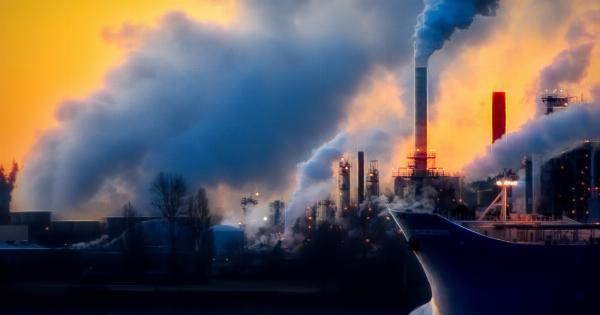Our planet is at a critical crossroad. The destructive consequences of human activities on the environment are becoming increasingly apparent, as pollution levels skyrocket and ecological systems collapse.
While it is easy to assign blame to large industrial corporations and governments, the reality is that every individual is complicit in polluting the environment, and guilty of neglecting its well-being. In this article, we explore the various ways in which individuals contribute to pollution and how their neglect exacerbates the environmental crisis.
The Convenience Trap: Consumerism and Waste
In today’s fast-paced world, convenience is king. We have become accustomed to the ease and immediacy of disposable products, single-use plastics, and wasteful consumer practices.
This mindset fuels rampant consumerism, where short-term gratification takes precedence over long-term consequences.
As a result, our landfills overflow with discarded plastic bottles, packaging, and other non-biodegradable materials. The manufacturing and disposal of these products generate vast amounts of greenhouse gases, pollute waterways, and harm wildlife.
Despite knowing the devastating impact of our actions, we often neglect to make environmentally conscious choices and perpetuate this cycle of waste.
Driving Pollution: The Love Affair with Cars
The automobile industry has revolutionized transportation, connecting people and facilitating growth. However, our love affair with cars has come at a steep environmental cost. As the number of vehicles on the road continues to rise, so does pollution.
Combustion engines emit harmful gases, such as carbon monoxide and nitrogen dioxide, contributing to air pollution and climate change.
Additionally, the extraction and refining of fossil fuels like gasoline and diesel further damage the environment through extraction practices and oil spills.
Despite advancements in fuel-efficient and electric vehicle technologies, many individuals neglect to switch to more sustainable modes of transportation.
Whether due to convenience, lack of awareness, or sheer inertia, we continue to contribute to air pollution and global warming.
Ignoring the Warning Signs: The Devastation of Deforestation
Forests are the lungs of our planet, essential for maintaining balance in global ecosystems. Yet, rampant deforestation persists in various parts of the world.
The demand for timber, agricultural land, and development continues to drive extensive clearing of forests.
Massive deforestation contributes to climate change, as trees absorb carbon dioxide and release oxygen. The loss of forests also disrupts habitats, leading to the extinction of numerous plant and animal species.
Moreover, deforestation contributes to soil erosion, flooding, and alters weather patterns.
While organizations and activists fight to protect our forests, it is the collective responsibility of individuals to demand sustainable practices and make conscious choices to reduce deforestation.
Forgotten Seas: Neglecting Marine Pollution
The world’s oceans are a vast source of life and play a crucial role in regulating our climate. However, these valuable ecosystems are increasingly threatened by human activity.
Plastic waste, oil spills, and excessive fishing practices are some of the main contributors to marine pollution.
Plastic pollution, in particular, poses a growing threat to marine life. Every year, millions of tons of plastic find their way into oceans, endangering a myriad of species.
From entangling marine animals to releasing toxic chemicals as they break down, these plastic pollutants wreak havoc on underwater ecosystems.
Moreover, overfishing disrupts the delicate balance of marine ecosystems, depleting fish populations and endangering marine biodiversity.
Despite well-documented evidence of the consequences, individual neglect in adopting sustainable fishing practices persists.
Wasted Wealth: Inefficiency and Energy Consumption
The pursuit of wealth and comfort has often come at the expense of the environment. Many individuals neglect to adopt energy-efficient practices, relying on inefficient appliances, poorly insulated homes, and excessive energy use.
Energy consumption contributes to greenhouse gas emissions and accelerates climate change. Fossil fuel-based energy sources further exacerbate the problem.
While renewable energy alternatives exist, the inertia to switch and the lack of regulation continue to hinder progress.
Disconnection from Nature: Neglecting Environmental Education
The neglect of our environment is not solely a result of conscious choices but also stems from a disconnection from nature. As urbanization and technology increasingly dominate our lives, individuals have become disconnected from the natural world.
This disconnection leads to a lack of understanding and appreciation for the environment’s intrinsic value. Environmental education plays a crucial role in raising awareness and inspiring action.
However, it is often neglected in educational systems, leaving generations ill-equipped to address environmental challenges.
A Path Towards Redemption: Taking Responsibility
It is clear that individuals are complicit in pollution, and their disregard contributes to the environmental crisis.
To reverse this trend, we must collectively take responsibility for our actions and make conscious choices that prioritize the well-being of the planet.
Reducing waste, embracing sustainable transportation alternatives, supporting forest conservation efforts, demanding cleaner oceans, and adopting energy-efficient practices are tangible steps towards creating a more sustainable future.
It is up to each individual to educate themselves, spread awareness, and advocate for change within their communities and on a larger scale. The time for neglect is over; it is time to act.































